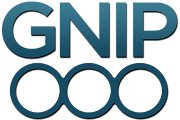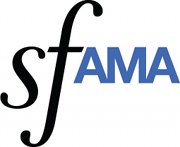Tutorial: Practical Sentiment Analysis
October 29, 2 - 5:30 pm, San Francisco

The Sentiment Analysis Symposium will be preceded Monday afternoon, October 29, 2012 by a three-hour tutorial, Practical Sentiment Analysis, 2:00 pm to 5:30 pm, designed and taught by Diana Maynard, research fellow at the Univ. of Sheffield, UK.
Previous tutorials have been taught by staff from eBay Research Labs (April 2011), Christopher Potts of Stanford University (November 2011), and Bing Liu of the University of Illinois at Chicago (May 2012).
The tutorial will take place in the Bar Association of San Francisco facility, in the Bently Reserve building at 301 Battery Street, San Francisco.
You may register for the tutorial or the symposium or both.
Tutorial Description
The Practical Sentiment Analysis tutorial will introduce the concepts of sentiment analysis and opinion mining from unstructured text, looking at why they are useful and what tools and techniques are available.
We will focus on practical opinion mining tasks. We will look at both rule-based and machine learning techniques, provide some background information on the key underlying NLP processes required, and focus on some of the major problems and solutions, such as detection of sarcasm, use of informal language, spam opinion detection, trustworthiness of opinion holders, and so on. We will also discuss problems associated with opinion detection in social media such as blogs, forum posts, twitter, etc. The techniques will be demonstrated with real applications developed in GATE, an open-source language processing toolkit. Hands-on exercises and relevant materials will be provided for participants to try out the applications in their own time, adn to experiment with building their own tools. Where relevant, alternative tools will also be discussed and hands-on experiments provided for these.
Tutorial Outline
- Introduction to Sentiment Analysis and Opinion Mining: (90 mins)
-
explanation of the concept of opinion mining and the motivation for it.
- what is opinion mining?
- who needs it and why is it useful?
- what kinds of fields is it used in?
- what kinds of knowledge can be acquired?
- how does it compare with traditional knowledge acquisition techniques such as polling and market research?
- how successful is opinion mining when used to predict the future?
- introduction to the main subtasks of an opinion mining system and the major challenges
- feature-opinion identification
- identification of opinion holders
- identifying trustworthiness of opinions
- identifying spam opinions and fake reviews
- detecting sentiment-containing words in different contexts ◦ tracking opinions over time
- detecting sarcasm/irony
- analysing conditional sentences
- dealing with negatives
- dealing with slang and incorrect English
-
discussion of some of the strengths and weaknesses of current systems
- what tools are currently available for opinion mining?
- how to compare and evaluate different types of tools (commercial, research, public)
-
explanation of the concept of opinion mining and the motivation for it.
-
Introduction to GATE: (15 mins)
- brief introduction to the concept of GATE (a language processing toolkit) and its major components
- what is GATE and how do I get it?
- what tools and resources does it have?
- why is it useful for opinion mining?
- brief introduction to the concept of GATE (a language processing toolkit) and its major components
-
Applications (90 mins)
- Machine learning for sentiment analysis of consumer reviews
- Brief introduction to machine learning for opinion mining
- Step by step description of a real application for analysing consumer reviews
- Evaluation of the results using GATE
- Rule-based application for opinion finding in social media
- Brief introduction to rule-based opinion mining and the various components
- Step by step description of a real application for analysing social media for general opinions about people, topics, events etc.
- Discussion of, and solutions to, the challenges imposed by processing social media (use of incorrect language, short or incomplete sentences, lack of contextual information, use of multiple languages, etc., use of slang, etc.)
- Machine learning for sentiment analysis of consumer reviews
- Summary and Q+A (15 mins)
Registration
You may register for the tutorial or the symposium or both. Visit the registration page.















